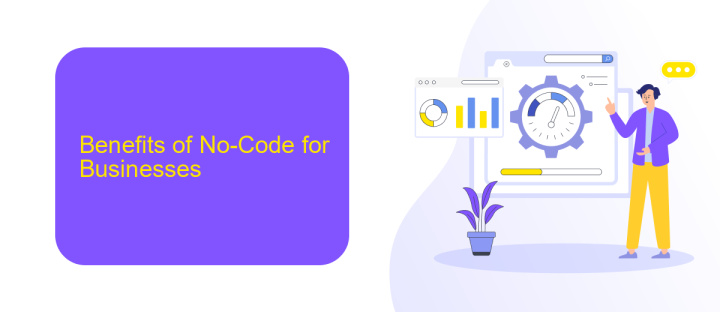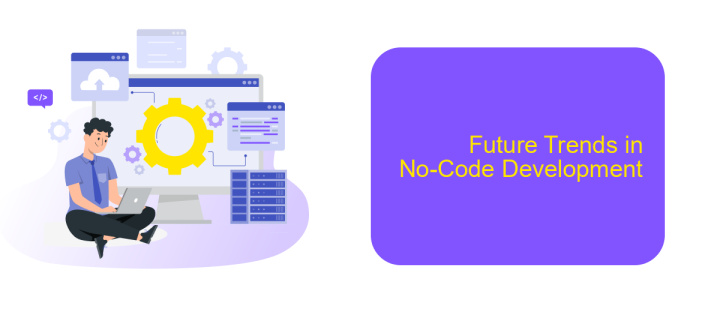Future of No-Code
The future of no-code development is poised to revolutionize the tech industry by democratizing software creation. No longer limited to professional developers, these intuitive platforms empower individuals from diverse backgrounds to build complex applications. This movement promises to accelerate innovation, reduce costs, and bridge the digital skills gap, making technology more accessible and inclusive for everyone.
The Rise of No-Code
The rise of no-code platforms has revolutionized the way businesses and individuals approach software development. By eliminating the need for extensive coding knowledge, these platforms have democratized technology, making it accessible to a broader audience. This shift has empowered non-technical users to create applications, websites, and automated workflows, significantly accelerating the development process.
- Empowerment of non-technical users
- Rapid prototyping and deployment
- Cost-effective solutions
- Increased innovation and creativity
One notable example of a no-code tool is ApiX-Drive, which simplifies the process of integrating various services and applications. By providing a user-friendly interface, ApiX-Drive enables users to set up complex integrations without writing a single line of code. This capability not only saves time but also allows businesses to streamline their operations and focus on growth. As no-code platforms continue to evolve, their impact on the tech industry is expected to grow, fostering an environment of innovation and inclusivity.
Benefits of No-Code for Businesses

No-code platforms offer businesses the ability to rapidly develop and deploy applications without the need for extensive programming knowledge. This leads to significant cost savings as companies can reduce their reliance on specialized IT staff and expensive development cycles. Additionally, the speed of deployment is greatly enhanced, allowing businesses to respond quickly to market changes and customer needs, thereby gaining a competitive edge.
Another significant benefit of no-code platforms is the ease of integration with existing systems and services. Tools like ApiX-Drive facilitate seamless integration, enabling businesses to connect various applications and automate workflows effortlessly. This not only improves operational efficiency but also ensures that data flows smoothly across different departments, enhancing overall productivity. By leveraging no-code solutions, businesses can innovate faster and more efficiently, driving growth and staying ahead in a rapidly evolving digital landscape.
Challenges of No-Code Adoption

Adopting no-code platforms can revolutionize how businesses develop applications, but it comes with its own set of challenges.
- Limited Customization: No-code solutions often offer limited customization options, which can be restrictive for complex projects.
- Scalability Issues: As the business grows, no-code platforms may struggle to handle increased demands, leading to performance bottlenecks.
- Integration Difficulties: Integrating no-code platforms with existing systems can be challenging. Tools like ApiX-Drive can simplify this process by offering seamless integration capabilities.
- Security Concerns: No-code platforms may not always meet stringent security requirements, posing a risk to sensitive data.
- Vendor Lock-in: Relying heavily on a single no-code platform can lead to vendor lock-in, making it difficult to switch providers without significant disruption.
Despite these challenges, the benefits of no-code platforms, such as rapid development and cost savings, make them an attractive option for many businesses. By carefully evaluating these challenges and leveraging tools like ApiX-Drive for integrations, organizations can maximize the potential of no-code solutions.
Future Trends in No-Code Development

No-code development is rapidly evolving, and several trends are shaping its future. One of the most significant trends is the increasing complexity of applications that can be built without traditional coding. As no-code platforms become more sophisticated, users can create more intricate and feature-rich applications.
Another trend is the growing integration of artificial intelligence and machine learning into no-code platforms. These technologies enable users to incorporate advanced functionalities such as predictive analytics and natural language processing into their applications without needing specialized knowledge.
- Enhanced AI and machine learning capabilities
- Greater focus on security and compliance
- Improved user experience and customization options
- Expansion of integration capabilities with tools like ApiX-Drive
As businesses continue to adopt no-code solutions, the demand for seamless integrations will rise. Services like ApiX-Drive will play a crucial role in connecting various applications and automating workflows, making it easier for users to manage their digital ecosystems efficiently. The future of no-code development promises more accessibility, innovation, and efficiency for businesses of all sizes.


Conclusion
The future of no-code platforms holds immense potential for democratizing technology and enabling a broader range of individuals to create sophisticated applications without the need for traditional programming skills. This shift not only empowers business professionals to innovate and streamline operations but also accelerates the pace of digital transformation across various industries. As no-code tools become more advanced, they will likely incorporate AI and machine learning capabilities, further enhancing their functionality and usability.
Integrating various services and automating workflows will be crucial for maximizing the benefits of no-code development. Tools like ApiX-Drive play a pivotal role in this landscape by providing seamless integration capabilities that connect different applications and services effortlessly. By leveraging such platforms, businesses can ensure that their no-code solutions are not only robust but also highly adaptable to changing needs. As we move forward, the continuous evolution of no-code platforms will undoubtedly shape the future of how we build and interact with technology.
FAQ
What is no-code development?
How will no-code platforms impact the future of software development?
Can no-code platforms handle complex integrations?
What industries can benefit most from no-code solutions?
Are there any limitations to no-code development?
Time is the most valuable resource for business today. Almost half of it is wasted on routine tasks. Your employees are constantly forced to perform monotonous tasks that are difficult to classify as important and specialized. You can leave everything as it is by hiring additional employees, or you can automate most of the business processes using the ApiX-Drive online connector to get rid of unnecessary time and money expenses once and for all. The choice is yours!

